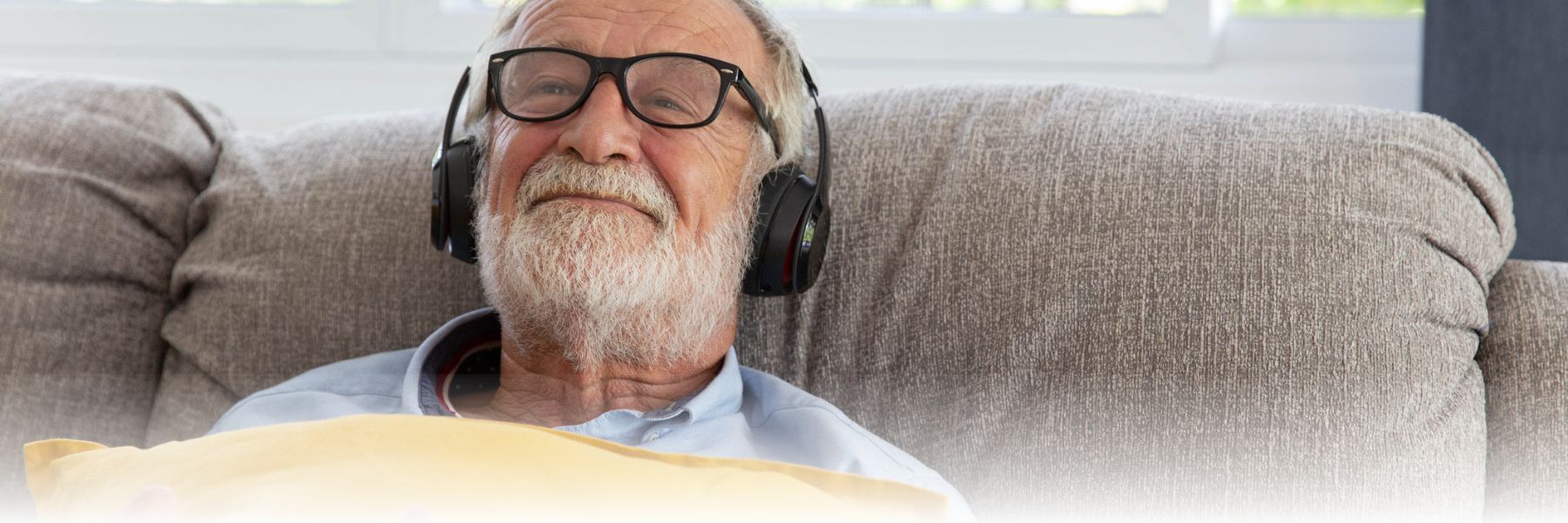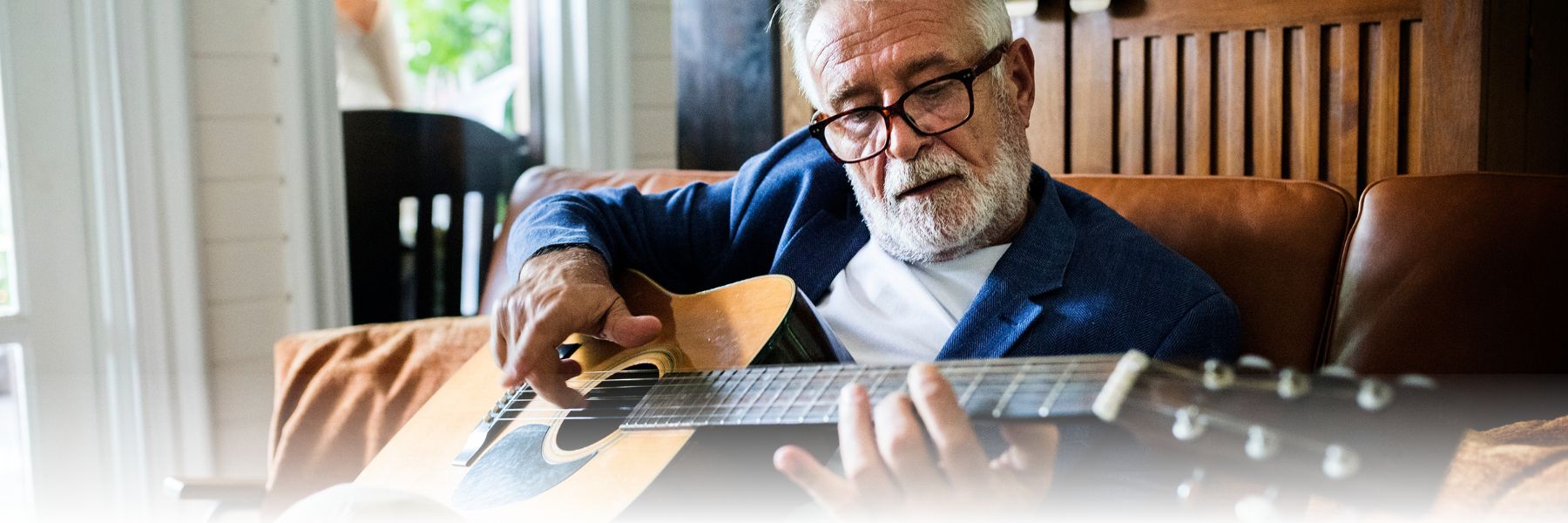
Unlocking the Secrets to Lifelong Hearing
“Ear and hearing care for all! Let’s make it a reality.” The CDC (Centers for Disease Control) supports the World Health Organization’s World Hearing Day, on March 3rd. World Hearing Day promotes ear and hearing care across the world and raises awareness of how to prevent deafness and hearing loss.
Most older adults will experience hearing problems at some time during their life. About half of those who are 75 years of age have hearing loss. By 80 years of age, 80% have hearing loss. Like everyone else, older adults who are hard of hearing want to age well and continue pursuing their dreams and interests.
Understanding Hearing Loss Types
Hearing loss comes in many forms. It can range from a mild loss, in which a person misses certain high-pitched sounds, to a total loss of hearing. Let’s look at the types of hearing loss:
Sudden hearing loss
Sudden deafness, also known as sudden sensorineural hearing loss, is an unexplained rapid loss of hearing. It can happen to a person all at once or over a period of a few days. It should be considered a medical emergency. If you or someone you know experiences sudden hearing loss, visit a doctor immediately.
Age-related hearing loss
Age-related hearing loss, also called presbycusis, comes on gradually as a person ages. It seems to run in families and may occur because of changes in the inner ear and auditory nerve, which relays signals from the ear to the brain. Presbycusis may make it hard for a person to tolerate loud sounds or to understand what others are saying.
Age-related hearing loss usually occurs in both ears, affecting them equally. Because the loss is gradual, people with presbycusis may not realize they have lost some of their ability to hear.
Symptoms of Age-related Hearing Loss
As we get older, there are a variety of symptoms that can come with hearing loss. Some common ones include:
- Speech of others sounds mumbled or slurred
- High-pitched sounds, such as “s” or “th” are hard to distinguish
- Conversations are difficult to understand when there is background noise
- Men’s voices are easier to hear than women’s
- Some sounds seem overly loud and annoying
- Tinnitus or ringing in the ears may occur in one or both ears
Causes of Hearing Loss
Loud noise
Loud noise is one of the most common causes of hearing loss. Noise from lawn mowers, or loud music can damage the inner ear and result in permanent hearing loss. Loud noise also contributes to tinnitus. You can prevent most noise-related hearing loss by turning down the sound on your devices, moving away from loud noise, or using ear protection.
Earwax or fluid buildup
Earwax or fluid buildup can also cause hearing loss by blocking sounds that are carried from the eardrum to the inner ear. If wax blockage is a problem, your doctor may suggest mild treatments to soften earwax.
Eardrum damage
A ruptured eardrum can also cause hearing loss. The eardrum can be damaged by infection, pressure, or putting objects in the ear, including cotton-tipped swabs.
Health conditions
Health conditions common in older adults, such as diabetes or high blood pressure, can contribute to hearing loss. Ear infections caused by viruses and bacteria, a heart condition, stroke, brain injury, or a tumor may also affect your hearing.
Medications
Hearing loss can also result from taking certain medications that can damage the inner ear, sometimes permanently. These medications may be used to treat serious infections, cancer, or heart disease. They also include some antibiotics, and even aspirin at some dosages.
Genetic variations
Genetic variations can cause hearing loss as well. Not all inherited forms of hearing loss are evident at birth. Some forms can show up later in life, such otosclerosis, which is thought to be a hereditary disease, involves the abnormal growth of bone that prevents structures within the ear from working properly.

Coping with Hearing Loss
If you notice signs of hearing loss, talk with your doctor. If you have trouble hearing, you should:
- Let your family and friends know you have a hearing problem.
- Ask people to face you and to speak louder and more clearly. Ask them to repeat themselves or reword what they’re saying.
- Pay attention to what is being said and to facial expressions or gestures.
- Let the person talking know if you do not understand what was said.
- Find a good location to listen. Place yourself between the speaker and sources of noise or look for quieter places to talk.
How to Talk with Someone Who has Hearing Loss
Here are some tips you can use when talking with someone who has a hearing problem:
- In a group, make a point to include people with hearing loss in the conversation.
- Find a quiet place to talk to help reduce background noise, especially in restaurants and at social gatherings.
- Stand in good lighting and use facial expressions or gestures to give clues.
- Face the person and speak clearly. Maintain eye contact.
- Speak a little louder than normal, but don’t shout.
- Try to speak naturally and at a reasonable speed.
- Do not hide your mouth, eat, or chew gum while speaking.
- Repeat yourself if necessary.
- Try to make sure only one person talks at a time.
- Be patient. People with hearing loss may also be frustrated by their condition. Stay positive and relaxed.
- Ask how you can help.

Tips to Improve Hearing and Prevent Hearing Loss
Hearing loss can have a significant impact on your health and well-being. Let’s take a look at some steps you can take to help prevent hearing loss.
Avoid loud noises
Turn the volume down on your devices and use earplugs when you have to be in a loud environment. Excessive noise is one of the most common causes of hearing loss, but the good news is that it’s also the most preventable.
Keep your ears dry
Excess moisture can lead to ear infections and wax buildup, which can cause hearing problems. Gently dry your ears with a towel after swimming or bathing to prevent excess water from entering the ear canal.
Don’t Smoke
Research indicates that smoking can more than double your risk of hearing loss. Blood flow and oxygen are crucial to maintaining healthy cells in your inner ear, and both are hampered by nicotine and carbon monoxide. Smoking also irritates the lining of your middle ear and disturbs the normal function of your eustachian tube. Nicotine has been shown to cause ringing in the ears.
Be cautious with medications
Some prescription medications can have side effects related to hearing loss, so be sure to discuss any possible effects with your doctor prior to starting a new medication or supplement.
Be aware of excessive ear wax buildup
While a small amount of ear wax is beneficial, a buildup of excess ear wax can cause mild hearing loss and discomfort. If you think you have an ear wax blockage, schedule an appointment with your doctor. Never attempt to get it out yourself, since you risk pushing the wax farther into your ear and damaging the lining of your ear canal or eardrum.
Avoid cotton swabs and other small objects
Never place any objects inside your ear canal, including cotton swabs. Doing so risks damage to your eardrum, which can cause pain and hearing loss.
Protect your ears
Keep your ears covered during extremely cold weather using a hat or earmuffs. Don’t forget to use ear protection, such as earplugs or noise-canceling headphones, any time you’re in an area with a lot of noise.
See your doctor regularly
Regular check-ups with your doctor are an important aspect of maintaining your overall health and can catch potential problems early. Other health conditions, like high blood pressure or diabetes, can also put you at risk for hearing loss.
Get regular hearing screenings
Routine hearing tests can detect early signs of hearing loss and improve your chances of returning to normal hearing. A routine hearing test also provides your doctor with a baseline to which your hearing can be compared as you age, allowing changes to be detected more quickly.
Take supplements and vitamins for better hearing health
A healthy diet rich in vitamins and minerals, regular exercise, and reducing your stress levels are all important for your overall health, and they can all impact your hearing, too.
Several vitamins and minerals have been linked to an improvement in ear function and hearing:
- B vitamins offer a host of potential benefits for your ears, including regulation of fluid levels and optimization of oxygen use. Folic acid promotes circulation to your ears, as well as energy production in the cells responsible for hearing.
- Magnesium aids healthy nerve function in the auditory system and helps prevent damage to the inner lining of your arteries.
- Zinc protects the hair cells within your ear, which are responsible for emitting the vibrations that send electrical signals to your brain. Zinc also supports your body’s immune system, helping prevent ear infections.
Always check with your doctor before adding any new vitamins into your daily medications.

Health Effects of Hearing Loss
Hearing loss can affect cognitive health. Studies have shown that older adults with hearing loss have a greater risk of developing dementia than older adults with normal hearing. Cognitive abilities, including memory and concentration, decline faster in older adults with hearing loss. A recent analysis of several studies found that people who used hearing restorative devices, such as hearing aids and cochlear implants, had a lower risk of long-term cognitive decline compared to people with uncorrected hearing loss.
Older adults who can’t hear well may become depressed or withdrawn because they feel frustrated or embarrassed about not understanding what is being said. This can lead to social isolation and loneliness.
Hearing loss is linked to an increased risk for falls and affects one’s ability to drive safely, when warning sounds are harder to hear.
All hearing impairments aren’t the same, which is why it’s important to find out what caused yours, what characterizes your type of loss, and how it affects your functional hearing and communication abilities. This will not only help relieve frustrations when retraining your brain, it will also help you explain to your loved ones and friends what you go through.
Take a few minutes to think about you and your daily routine. Determine changes that you may want to make in your daily life that will best protect your hearing and minimize your chances of hearing loss. If you have concerns, pick up the phone and schedule an appointment with your health care provider immediately.
Embrace Healthy Hearing
As we get older, it’s crucial to take steps to protect and maintain our hearing. Hearing loss can have a big impact on our overall health and well-being. The good news is, there are plenty of things we can do to keep our hearing in tip-top shape. Some simple steps include avoiding loud noises, using ear protection in noisy environments, and getting regular check-ups with an audiologist. By taking these precautions, you can help preserve your hearing for today, tomorrow, and the future.
Wanting to learn more helpful tips on aging gracefully and keeping healthy? The Ohio Masonic Communities is your go to resource. With three locations in Springfield, Waterville, and Medina, OH, their senior living communities offer 24/7 care and support for independent living, assisted living, and memory care. If you and your loved one are interested in senior living, schedule a tour at one of the scenic and beautiful communities. Call (877) 881-1623 today to learn more about their great senior living options.
